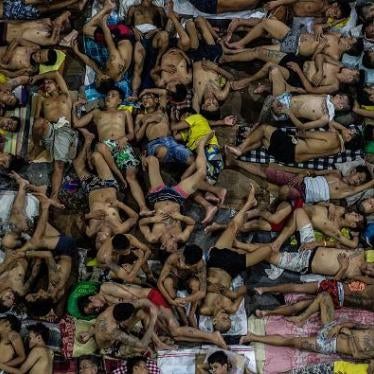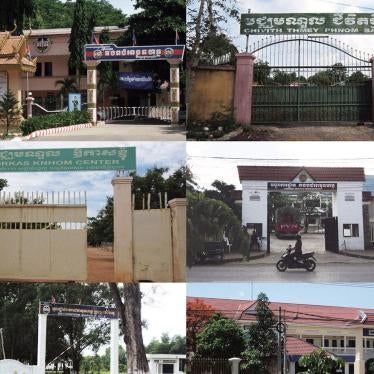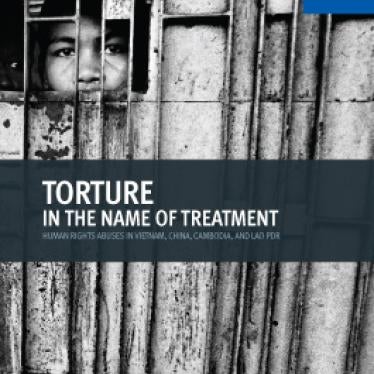(Vienna) - The United Nations must stop the ongoing subversion of human rights in the name of drug control, the International Harm Reduction Association, Human Rights Watch, the Canadian HIV/AIDS Legal Network and the Beckley Foundation Drug Policy Programme said in a joint report released today as the UN Commission on Narcotic Drugs (CND) convenes for its annual meeting to debate global drug policy.
The report, “Recalibrating the Regime: The Need for a Human Rights-Based Approach to International Drug Policy," examines the tensions between the international drug control system and UN human rights standards, highlighting the multiple ways in which the enforcement of drug control prohibition – the dominant approach of the UN system – has led to widespread and serious human rights violations. Yet, despite numerous instances of human rights abuses perpetrated in the name of drug control, there has been little engagement with this issue by bodies such as the International Narcotics Control Board (INCB) and CND or by the human rights treaty bodies.
The report will be presented during a panel discussion on the worldwide human rights impact of the war on drugs from 1h30 – 15h00 at the Vienna International Centre, 7th floor, Conference Room 2. Speakers will address key issues covered in the report, including the use of the death penalty for drug offenses, barriers to HIV prevention and treatment, and repressive and abusive law enforcement measures.
“The UN General Assembly has stated repeatedly in resolutions that drug control must be carried out in full conformity with, and full respect for, all human rights and fundamental freedoms,” said Mike Trace of the Beckley Foundation, which commissioned the report. “Delegations to this week’s meeting must ensure that their obligations under international human rights law underpin all CND deliberations and actions.”
“Despite the primacy of human rights obligations under the UN Charter, the approach of the UN system and the wider international community to addressing the tensions between drug control and human rights remains ambiguous,” said Richard Elliott of the Canadian HIV/AIDS Legal Network. “This is inexcusable in the face of the egregious human rights abuses perpetrated in the course of enforcing drug prohibition, which in turn damages global efforts to prevent and treat HIV.”
The groups expressed particular concern at the recent public comments by the government of Thailand that it intends to resume former Prime Minister Thaksin Shinawatra’s notorious “war on drugs,” which in 2003 resulted in some 2,800 extra-judicial killings.
“As the UNODC has acknowledged, there are proven methods to address drug use while protecting human rights. Murder is not one of them,” said Rebecca Schleifer, advocate with the HIV/AIDS and Human Rights Program at Human Rights Watch. “As a member of the CND, Thailand must be held to account for its actions on drugs, and pressure brought by the international community to ensure that human rights violations are not repeated.”
“Last week, INCB President Philip Emafo stated in the board’s 2008 annual report that ‘To do nothing [about drugs] is not an option’,” said Rick Lines of the International Harm Reduction Association. “We are here today to state clearly that doing nothing about the human rights abuses perpetrated in the name of the drug war is also not an option. In this, the 60th anniversary year of the Universal Declaration of Human Rights, CND member states and indeed the entire UN family must speak out clearly that human rights must not be sacrificed on the altar of drug control.”







